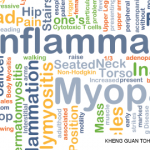“The number one cause of non-relapse mortality in most patients is infection,” says Matthew J. Frigault, MD, clinical director, Cellular Therapy Service, Massachusetts General Hospital, and assistant professor of medicine, Harvard Medical School, Boston. “That’s because oncology and rheumatology patients don’t have normal functional immune systems to begin with.”4
Not including juvenile dermatomyositis, seven CAR T cell therapies are FDA approved for lymphoma, some leukemias and multiple myeloma in both adults and children.
The benefits of these therapies need to be carefully weighed along with the risks.
More to Come
In January, Cartesian Therapeutics Inc. announced that it had received written FDA agreement under the Special Protocol Assessment process on the overall design of the company’s planned phase 3 AURORA trial for Descartes-08 for the treatment of adults with generalized myasthenia gravis.5 It is also in phase 2 clinical development for the treatment of adults with systematic lupus erythematosus. A clinical trial is planned for additional autoimmune diseases.
Researchers have also begun to rethink the source of immune cells for CAR T cell therapies—using T cells collected not from patients, but from healthy donors. The goal: The creation of off-the-shelf CAR T cell therapies that would be immediately available for use rather than having to be manufactured for each patient.3
Updated Feb. 12, 2025, with additional information about CAR T cells therapies and sidebar.
Michele B. Kaufman, PharmD, BCGP, is a freelance medical writer based in New York City and a pharmacist at New York Presbyterian Lower Manhattan Hospital.
References
- Cartesian Therapeutics receives FDA rare pediatric disease designation for descartes-08 for the treatment of juvenile dermatomyositis [news release]. Cartesian Therapeutics Inc. 2024 Sep 9.
- Types of myositis: Juvenile myositis. The Myositis Association. 2024.
- CAR-T cells: Engineering patients’ immune cells to treat their cancers. National Cancer Institute. 2022 Mar 10.
- Shapiro SC. CAR-T cells: Are we closer to drug-free remission than we think? The Rheumatologist. 2024 Jul;18(7).
- Cartesian Therapeutics announces FDA Special Protocol Assessment Agreement for phase 3 AURORA trial of descartes-08 in myasthenia gravis [news release]. Cartesian Therapeutics Inc. 2025 Jan 7.
Learn More
For more information about CAR T cells, read these articles on our website:
“CAR-T Cells: Are We Closer to Drug-Free Remission Than We Think?” by Samantha C. Shapiro, MD; first published in the July 2024 issue of The Rheumatologist, Vol. 18, No. 7; and “CAR-T Cell Therapy in Autoimmune Disease: The Next Frontier” by Jason Liebowitz, MD.


